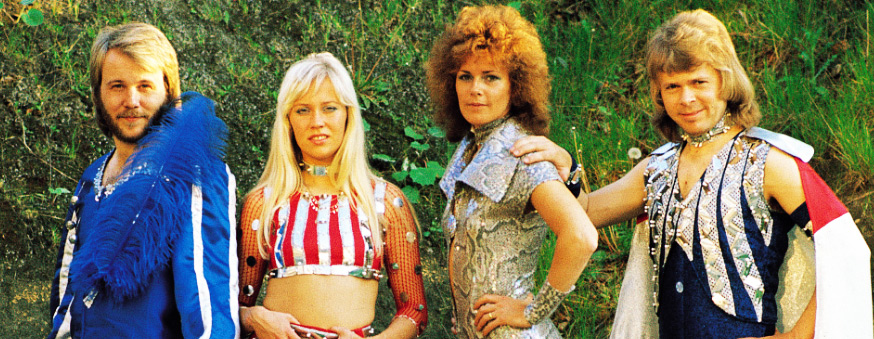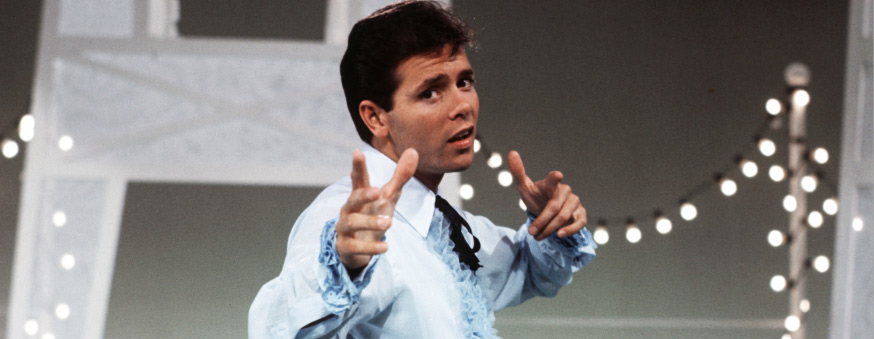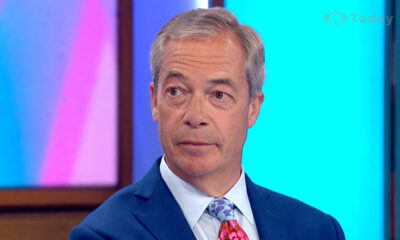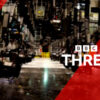BBC
The top ten Eurovision Superstars
The most successful performers from the song contest have been placed in a top ten countdown.
With Eurovision back on the Beeb after more than a years’ hiatus, many fans are eagerly waiting to see the acts that will pass through to Saturday’s final show and represent their country.
And as the ESC often promotes artists who go on to reach incredible heights of fame, the broadband experts at Uswitch have taken a look at some of the most successful contestants from the show, as part of their karaoke music campaign.
From ABBA to Cliff Richard, they’ve revealed the top Eurovision artists of all time.
1 – Duncan Laurence – Netherlands, 2019
Sang: ‘Arcade’, YouTube views: 24,942,719, Spotify Monthly Listeners: 17,173,719.
After appearing on the Netherlands version of ‘The Voice‘, Duncan was chosen to represent the country on the song contest show, managing to bag first place with his powerful ballad all about heartbreak.
Now, the song is seeing a comeback two years on from the performance thanks to the power of TikTok, with streams for the song on Spotify rack up fast. Most recently, ‘Arcade’ was announced as the first Eurovision winners’ song to top the US Billboard charts in 45 years.
2 – Mahmood – Italy, 2019
Sang ‘Soldi’, Spotify Monthly Listeners: 2,626,182, Spotify Streams: 178,844,821.
Competing originally in the Italian version of The X Factor, Mahmood went on to represent Italy in the 2019 Eurovision, placing second in the competition.
‘Soldi’ became the most streamed Eurovision song on Spotify before Duncan Laurence’s ‘Arcade’ replaced it, and he has also topped the charts in Greece, Israel and Italy with the hit.
3 – Conchita – Austria, 2014
Sang: ‘Rise Like a Phoenix’, Youtube streams: 38,295,893 views, Spotify Monthly Listeners: 180,645.
One of the most recognisable performers of all time that has come out of Eurovision has been Conchita Wurst. Initially poised as a novelty act on the show, fans went wild after Conchita took to the stage and beat other frontrunner countries, Armenia and Sweden with her epic performance of ‘Rise Like a Phoenix’.
Conchita’s performance helped to reposition drag acts within the competition and beyond, however, Conchita herself has been seen much less inrecent years. Tom Neuwirth, who created Conchita, can still be seen performing across Europe but with a new style and musical sound.

4 – Bonnie Tyler – UK, 2013
Sang: ‘Believe in Me’, YouTube streams: 929,716, Spotify Monthly Listeners: 7,172,732.
In 2013, many years after nil-point scores for UK performers had become the norm, Bonnie Tyler took to the stage to represent the disheartened nation with a classic rock ballad.
While Bonnie’s best efforts on the show didn’t quite secure first place (she finished nineteenth), she has claimed her spot as an iconic music legend with three Grammy Awards under her belt and millions of single sales.
5 – Lordi – Finland, 2006
Sang: ‘Hard Rock Hallelujah’, YouTube streams: 40,925,638, Spotify Monthly Listeners: 552,404.
Lordi made waves as the first heavy metal band to win Eurovision in 2006, as well as appearing in full monster costumes for their performance.
Lordi have achieved international acclaim for their music since the show and are even set to appear at this year’s grand final performing their winning song, ‘Hard Rock Hallelujah’ again.
6 – t.A.T.u. – Russia, 2003
Sang: Ne Ver Ne Boysia Ne Prosi, YouTube streams: 720,770, Spotify Monthly Listeners: 3,130,465.
t.A.T.u were already established names when they went on to represent Russia in the 2003 competition and were seen as favourites to win the show. However, the competition was overshadowed by controversy as Eurovision producers were worried their performance would be too explicit for the family-friendly show, threatening to disqualify the band.
Further controversy came after Russia argued the competition had been rigged when the band placed only third. Despite this, t.A.T.u continued to perform after the show across Europe, before disbanding briefly in 2011.
7 – Céline Dion – Switzerland, 1988
Sang: ‘Ne Partez Pas Sans Moi’, YouTube views: 1,040,299, Spotify Monthly Listeners: 10,344,169.
One artist you may not realise that shot to fame from the song contest was Celine Dion. In 1988 at only 20 years old, Celine wowed viewers across Europe with her performance in French of ‘Ne Partez Pas Sans Moi’, beating the UK to first place by just one point.
After Eurovision, Celine went on to create 27 studio albums, perform the soundtrack to the film Titanic with ‘My Heart Will Go On’, and sell over 10 million albums in Europe – a feat that only Michael Jackson has also ever accomplished.

8 – Olivia Newton-John – UK, 1974
Sang: ‘Long Live Love’, YouTube streams: 76,129. Spotify Monthly Listeners: 6,343,573.
Before Olivia Newton-John featured as Sandy in the hit film ‘Grease’, she represented the UK by singing ‘Long Live Love’ in Brighton for the competition.
Finishing in fourth place, it’s been claimed that Newton-John wasn’t particularly a fan of the song herself. The star has since gone on to win four Grammy Awards and is still acting to this day.
9 – ABBA – UK, 1974
Sang: ‘Waterloo’, YouTube streams: 4,102,631. Spotify Monthly Listeners: 14,994,302.
1974 was a big year for Eurovision, as it was not only the year Olivia Newton-John performed but also ABBA, representing Sweden.
Winning the show with their now-iconic hit, ‘Waterloo’, ABBA have become worldwide legends since appearing on the show and are arguably the most well-known act associated with Eurovision too.
10 – Lulu – UK, 1969
Sang: ‘Boom Bang a Bang’, YouTube streams: 1,503,857, Spotify Monthly Listeners: 552,404.
Back when the UK took pride in the contestants they sent to Eurovision in 1969, it was a young Lulu that represented the country.
Lulu was one of four joint winners of the 1968 Eurovision song contest. Following on from this, she went on to collaborate with rock music legend, David Bowie, as well as singing the theme tune to James Bond’s ‘The Man With The Golden Gun’.
Just missing out on the top ten is the ever-youthful Sir Cliff, who came in eleventh on the research. Cliff Richard represented the UK twice in 1968 and again in 1973 with songs ‘Congratulations’, and then ‘Power To All Our Friends’.
Despite already being a big superstar, Sir Cliff Richard took second place in 1968 with ‘Congratulations’, and third place five years later with ‘Power To All Our Friends’, Sir Cliff is now better known as one of the best-selling music artists of all time, rather than for his Eurovision performances.
His YouTube streams were noted as 302,566 while his Spotify Monthly Listeners is 1,734,763.
The Eurovision final is taking place this Saturday, and as part of their karaoke music campaign, Uswitch has revealed the biggest stars of all time from the show.











